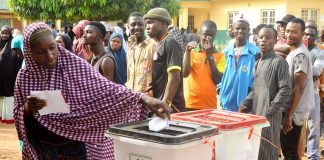Nigeria’s economy is teetering on a precarious edge, with fresh warnings from the Lagos Business School (LBS) highlighting troubling macroeconomic trends, a volatile exchange rate, persistent inflation, and inadequate fiscal discipline.
In its April 2025 Executive Breakfast Session report, the LBS paints a grim picture: the naira continues to suffer massive devaluation, plunging to ₦1,627/$ in the official market and over ₦1,600/$ at the parallel market. This sharp decline, attributed to both high demand and speculative trading, has sparked renewed pressure on businesses, many of whom rely on imports.
Despite the Central Bank of Nigeria’s (CBN) policy moves—including multiple interest rate hikes, tightening monetary policy, and clearing a backlog of FX forwards—the naira has failed to stabilize. The report notes that monetary measures alone are insufficient without complementary fiscal reforms and improved productivity.
Inflation remains a top concern. March 2025 figures show headline inflation rose to 34.8%, with food inflation reaching a staggering 45.5%. LBS warns that these numbers may climb higher due to rising transportation and logistics costs, fueled by the floating exchange rate and the impact of global energy prices. The removal of fuel subsidies in 2023 continues to ripple through the economy, affecting both urban and rural households.
One of the most alarming revelations in the report is the growing fiscal burden on the federal government. Debt servicing costs exceeded revenue by 30% in 2024, with over 90% of retained revenue spent on debt servicing. This unsustainable debt profile, combined with dwindling oil revenues and high governance costs, signals an urgent need for expenditure restructuring and targeted subsidy reforms.
The external sector has shown marginal improvements, with crude oil production rising to 1.56 million barrels per day in March. However, Nigeria remains vulnerable to global oil price fluctuations, geopolitical tensions in the Middle East, and internal security challenges that disrupt production.
LBS also flags concerns over dwindling investor confidence. Foreign portfolio investment in Nigeria dropped by 50% year-on-year in Q1 2025, driven by exchange rate volatility and concerns over repatriation of returns. Many investors are adopting a “wait and see” approach, further slowing economic recovery.
On a more positive note, the CBN’s commitment to market reforms and the recent rollout of its “Willing Buyer, Willing Seller” FX policy have shown potential, but the report emphasizes that without structural reforms, the impact may be short-lived.
The message from LBS is clear: Nigeria must adopt a coordinated macroeconomic policy framework that includes fiscal discipline, increased local production, export diversification, and aggressive investment in infrastructure.
As millions of Nigerians grapple with higher food prices, joblessness, and weakened purchasing power, policymakers are under pressure to act—swiftly and decisively.
Read the full April 2025 LBS Executive Breakfast Session Report here:
LBS April 2025 Report PDF













